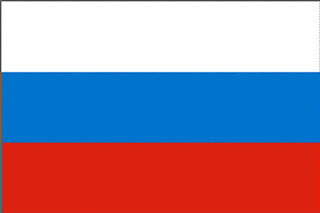OPEC Planning to Maintain Oil Quotas as U.S. Winter Nears
Published:
24 September 2003 y., Wednesday
OPEC, supplier of a third of the world's oil, is planning to maintain output quotas through the end of the year as sabotage limits Iraqi exports and demand rises because of winter from the U.S. to Japan, officials said.
The group meets today in Vienna. Ministers from Saudi Arabia, Iran, Kuwait, the United Arab Emirates, Algeria, Venezuela and Indonesia have signaled no change is needed because prices are within their target of $22 to $28 a barrel.
``OPEC has no immediate need to act,'' said Chris Brown, director of energy consulting at Wood Mackenzie Consultants Ltd. in London. ``We could see a cut in the next two months depending on how more Iraqi oil comes on line. The last thing OPEC wants is a glut forming.''
Crude oil in London has averaged $28.29 a barrel in 2003, $10 more than the 1990s average, boosting income within the Organization of Petroleum Exporting Countries and profit at oil companies such as BP and Exxon Mobil Corp. Prices may fall in 2004 as Iraqi exports and rising output in Russia overwhelm demand, according to a Bloomberg News survey.
Iraqi Oil Minister Ibrahim Mohammad Bahr al-Ulum traveled to Vienna for the gathering, where Venezuela objected to the country's participation in the formal meeting. The minister was appointed with the help of the U.S.-led authority in Baghdad, and Iraq's interim government has yet to be recognized by the United Nations.
Concern is mounting among ministers that prices will decline in 2004, and Algerian and Kuwaiti officials said OPEC may have to assemble again in December. Oil prices have dropped 15 percent in the past month for OPEC's benchmark, to $24.82 a barrel.
Šaltinis:
Bloomberg
Copying, publishing, announcing any information from the News.lt portal without written permission of News.lt editorial office is prohibited.
The most popular articles
 How will economic policies adapt in 2020 when a quarter of the EU population is over 65? Can economics better predict how banks will react to credit crunches in the future, and what their impact will be on the wider economy?
more »
How will economic policies adapt in 2020 when a quarter of the EU population is over 65? Can economics better predict how banks will react to credit crunches in the future, and what their impact will be on the wider economy?
more »
 The EBRD is supporting the development of one of the first modern food retail chains in Turkmenistan with a $1.9 million equity investment in Ak Enar.
more »
The EBRD is supporting the development of one of the first modern food retail chains in Turkmenistan with a $1.9 million equity investment in Ak Enar.
more »
 While on a working visit to Ukraine, President of the Republic of Lithuania Dalia Grybauskaitė has underlined that Ukraine might become a very important energy partner for Lithuania and for the whole European Union but only transparent and open relations will lead to success in this area.
more »
While on a working visit to Ukraine, President of the Republic of Lithuania Dalia Grybauskaitė has underlined that Ukraine might become a very important energy partner for Lithuania and for the whole European Union but only transparent and open relations will lead to success in this area.
more »
 On 25 November in Vilnius, Lithuania’s Vice-Minister of Foreign Affairs and President of the Nordic Investment Bank discussed the issues of the Northern Dimension Partnership on Transport and Logistics (the secretariat of which is being established at the Bank), issues of the NIB cooperation with Lithuania and perspectives of the NIB’s activities in the country.
more »
On 25 November in Vilnius, Lithuania’s Vice-Minister of Foreign Affairs and President of the Nordic Investment Bank discussed the issues of the Northern Dimension Partnership on Transport and Logistics (the secretariat of which is being established at the Bank), issues of the NIB cooperation with Lithuania and perspectives of the NIB’s activities in the country.
more »
 The European Bank for Reconstruction and Development has adopted a new strategy for the Russian Federation.
more »
The European Bank for Reconstruction and Development has adopted a new strategy for the Russian Federation.
more »
 Consumer protection requires transparent and consistent trade rules, believe MEPs.
more »
Consumer protection requires transparent and consistent trade rules, believe MEPs.
more »
 The European Investment Bank (EIB) is lending CZK 2 billion (approx. EUR 76 million) to the South Moravia Region for co-financing the Region’s priority infrastructure projects supported by the EU Structural and Cohesion Funds over the period 2007 – 2013.
more »
The European Investment Bank (EIB) is lending CZK 2 billion (approx. EUR 76 million) to the South Moravia Region for co-financing the Region’s priority infrastructure projects supported by the EU Structural and Cohesion Funds over the period 2007 – 2013.
more »
 Seeking to strengthen business partnership between Israel and Lithuania the Israel and Lithuania Chamber of Commerce has been recently established in Lithuania.
more »
Seeking to strengthen business partnership between Israel and Lithuania the Israel and Lithuania Chamber of Commerce has been recently established in Lithuania.
more »
 AB DnB NORD Bankas, notifies that on 24 November 2009, the member of the Management Board and Executive Vice-president of AB DnB NORD Bankas dr. Jekaterina Titarenko has been appointed as Chief Financial Officer of Bank DnB NORD Group.
more »
AB DnB NORD Bankas, notifies that on 24 November 2009, the member of the Management Board and Executive Vice-president of AB DnB NORD Bankas dr. Jekaterina Titarenko has been appointed as Chief Financial Officer of Bank DnB NORD Group.
more »
 Parliament gave its backing on Tuesday for €400 million-plus in budget aid to Serbia, Bosnia and Herzegovina, Armenia and Georgia.
more »
Parliament gave its backing on Tuesday for €400 million-plus in budget aid to Serbia, Bosnia and Herzegovina, Armenia and Georgia.
more »